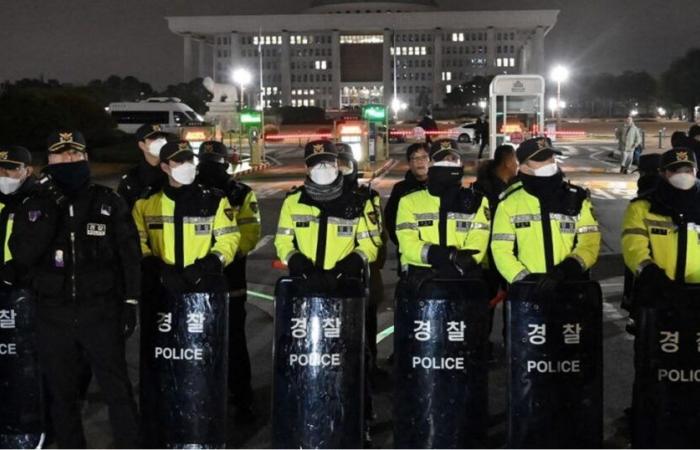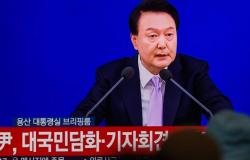South Korean President Yoon Suk-yul declared a state of emergency in the country and activated martial law, accusing the opposition of opposing the state and working for the benefit of the northern neighbor, pledging to protect “the country’s constitutional order.”
What’s remarkable about it?
Declaring emergency and martial law is not a normal thing in South Korea, and the stated reason does not amount to a convincing argument, which is after the opposition Democratic Party rejected the budget bill in Parliament.
Declaring martial law means suspending all or some of the laws in force, under the pretext of preventing the dangers to which the country is exposed.
Show related news
It is also the first time that the country has declared martial law since the fall of military rule in South Korea and the assassination of the South Korean dictator who arrived in a military coup, Park Chung in 1979.
How did the army react to the president’s decision?
Starting with the declaration of martial law by President Yoon Seok-yeol late Tuesday, the military leadership announced a decree banning all political activities, including protests and activities by political parties.
The decree, issued by Army Chief of Staff General Park In-soo, took effect as of 11 p.m.
Show related news
The decree also places all media outlets and publishers under control, in addition to ordering trainee doctors who went on strike to immediately return to work within 48 hours.
Those who violate martial law can be arrested or raided without a judicial order, according to the decree.
recently
Aside from the Democratic Party’s opposition to the draft budget in Parliament, Yoon accused the opposition of turning the country into a drug haven and creating a state of chaos that harms public safety and livelihoods.
He accused the opposition party, which controls Parliament, of trying to overthrow the democratic system, declaring that Parliament, the “National Assembly,” had become a monster that undermined liberal democracy, and the nation was in a perilous state, teetering on the brink of collapse.
What did they say?
◼ South Korean leader Yoon said that the country’s opposition controls parliament, sympathizes with North Korea, and is working to paralyze the government with anti-state activities.
◼ Yoon continued, “I will eliminate the anti-state forces as soon as possible and return the country to normal. I hope people will be patient and endure some harassment.”
◼ Leader of the ruling People Power Party, Han Dong-hun, said declaring martial law was a “wrong” move and vowed to prevent it.
◼ The official South Korean Yonhap Agency said that security forces closed Parliament and prevented representatives from reaching it after the opposition invited its representatives to meet.
◼ Leader of the opposition Democratic Party, Lee Jae-myung, said he condemned the move, describing it as unconstitutional.
The broader picture
Last April, President Yoon pledged “reforms” after a disastrous ruling party election that strengthened the opposition’s control of parliament.
The result of the parliamentary elections has turned President Yoon into a “lame duck”, while the country faces challenges that include a declining economy and North Korea’s increasing aggression.
“I will humbly respect the will of the people expressed in the general election, reform state affairs, and do my best to stabilize the economy and people’s livelihood,” Yoon said.
Parliamentary attempt
Hours after the president’s decision, the South Korean parliament, in the presence of 190 of its 300 members, approved a resolution to lift martial law declared by President Yeon Suk-yeol, according to a live television broadcast.
What are we waiting for?
The opposition could resort to the street, relying on its weight in Parliament and the ruling party’s stance against the president’s decision, if the president refrains from rescinding his decision after Parliament votes.






